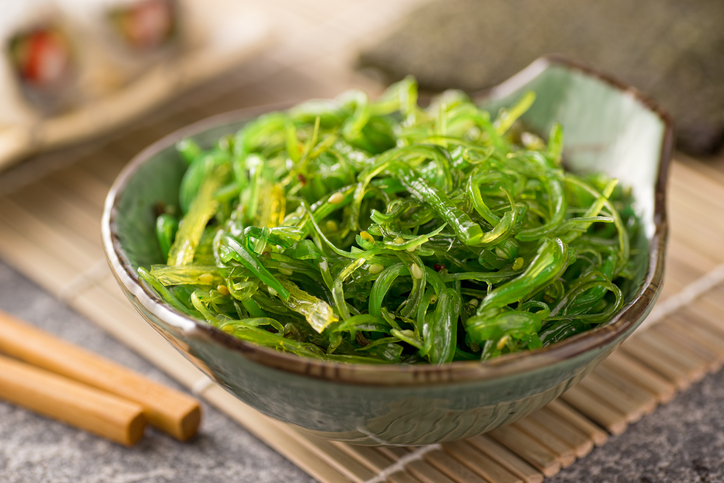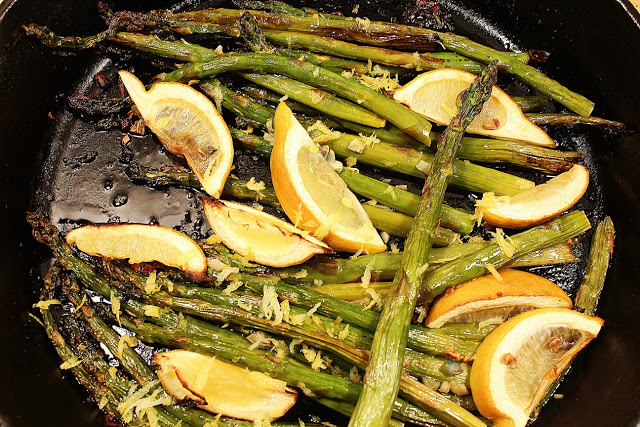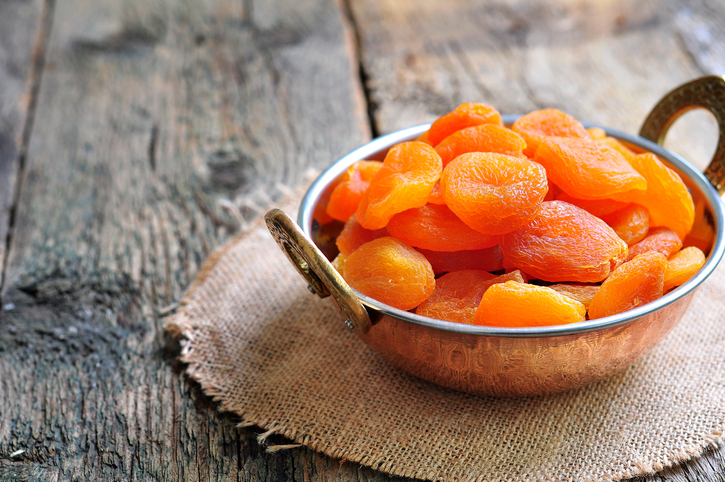
The whole thinking behind "zero-calorie foods" is that they contain fewer calories than the body uses to break them down. But just because they have very few calories doesn't mean they have to have very little taste. The following foods are big on taste and have such a slight caloric load they won’t put a dent in your daily total.
Zero Calorie Foods That You Must Add to Your Diet
13. Cucumbers
Cucumbers contain so much water in them that it’s not surprising that they’re low in calories. That’s why cucumbers make a great adornment to most salads, especially when the salad is full of other low-cal veggies. You can eat until you feel full, while keeping your total number of calories to a minimum. Combine this sort of eating with a more active lifestyle, and you start to tip the scales in your favor, literally and figuratively. Plus it's only 16 calories per serving.

12. Kelp
Ok, I know what you're thinking. No need to turn your nose up on sea vegetables. Kelp is loaded with vitamin K, which helps keep bones strong, along with a natural fiber called alginate, which may help block fat absorption, according to research from Newcastle University in the UK. For only 6 calories per 4-ounce serving, try mixing Sea Tangle Kelp Noodles into salads, soups, and stir-fries.

11. Asparagus
A half-cup of cooked asparagus will set you back only 20 calories. Plus, you'll get hefty doses of vitamins K and A, and B vitamins such as folic acid. Since B vitamins play a role in breaking down sugars and starches, eating asparagus may help regulate blood sugar and fend off type 2 diabetes.
10. Celery
Celery is another food that is filled with water. The stringy nature of celery makes it seem as if it only exists to hold the water it contains. What you’ll typically see is celery with peanut butter or cream-based fillings inside of it, and you’ll want to avoid those if you are keeping track of calories, as they can swing it back the other way quite quickly. Total calories per 100g serving: 16

9. Apricots
Packed with beta-carotene, apricots can help fight cancer and heart disease as well as protect your eyesight. Eating three or more daily servings of fruit rich in vitamins A, C, and E and carotenoids like beta-carotene may lower your risk of macular degeneration, the dominant cause of age-related vision loss. When participants in a study published in the Archives of Ophthalmology ate this much fruit, they were 36 percent less likely to suffer from the disease compared to those who consumed 1.5 servings or less of fruit daily.
8. Watermelon
This summertime fruit is loaded with citrulline, an amino acid that the body converts to arginine, and arginine may aid weight loss. Researchers found that obese mice that were fed arginine supplements burned more fat and gained more lean muscle than those that did not receive them, according to a Journal of Nutrition study.
DON'T MISS: 5 Amazing Facts About Watermelon: Nature's Most Powerful Food
7. Summer Squash
All squashes are full of vitamins and belly-filling fiber. But summer squash has one advantage: you can eat more of it without gaining weight. In fact, you can have two times more summer squash than winter squash for the same number of calories.
6. Turnip
The turnip sometimes takes a backseat to more popular root vegetables, like carrots and potatoes, but its nutritional benefits shouldn't be overlooked. The root contains cancer-fighting glucosinolates and is a good source of fiber, calcium, and potassium.
5. Tomatoes
The lycopene in tomatoes can protect against prostate cancer and help keep skin looking young by eliminating free radicals that build up when you're exposed to ultraviolet rays. Tip: Cooking tomatoes spikes levels of lycopene and makes it easier for your body to absorb the nutrients, according to a Cornell University study.
READ THIS: 10 Superfoods To Ward Off Heart Disease
4. Cauliflower
Counting your carbs? Try boiling, mashing, and seasoning cauliflower to get a mashed potato substitute that tastes almost like the real thing. A half-cup of boiled cauliflower contains only 14 calories, but nearly half your daily recommended intake of vitamin C.
3. Red Chili Peppers
Add a little spice to your cooking and slim down while you're at it. Capsaicin, the compound that gives red chili peppers their kick, has been shown to help your body burn more calories. Plus, research shows that we tend to eat smaller portions of spicy foods because of the heat.
2. Mushrooms
Whether you sauté them or eat them raw, mushrooms are an often-overlooked superfood. Dutch researchers found that when you digest mushrooms, your body produces cancer-fighting, immunity-boosting metabolites.
RELATED: Could Mushrooms Be the Secret Weight Loss Ingredient?
1. Red Bell Pepper
Any way you slice it, red bell peppers are a great source of nutrients. A medium-sized pepper delivers 250 percent of your daily recommended intake of vitamin C, 75 percent of your daily vitamin A needs, and 10 percent of your fiber goals. Chop them up and pair them with hummus for a healthy snack.








